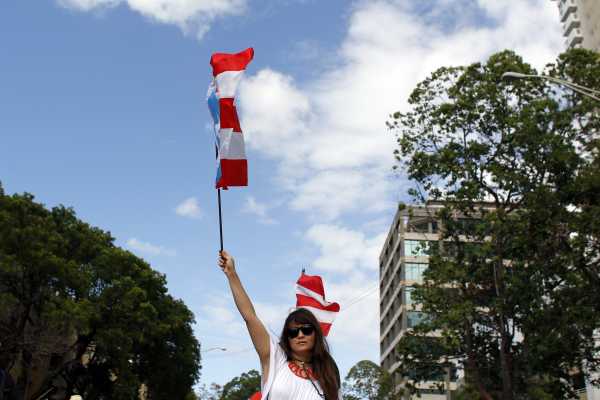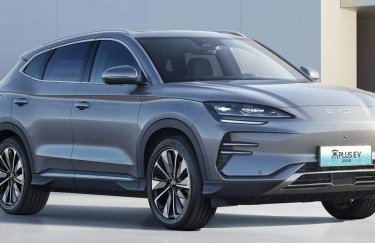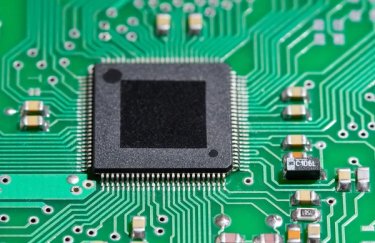
Puerto Rican leaders are pushing for statehood again.
Rep. Jenniffer González-Colón, Puerto Rico’s sole non-voting member of Congress, introduced a bill Tuesday that would create a path for the US territory to become the 51st state.
The bipartisan Puerto Rican Statehood Admission Act would fund a ballot referendum in Puerto Rico in November 2020, asking voters on the island if they want statehood or not. It’s a slight variation of previous ballot measures that went nowhere. If the bill passes, it would mark the third time Puerto Ricans have voted on the statehood issue since 2012.
“[The bill] places us on the path towards the political equality we deserve,” González-Colón said on Twitter Tuesday.
There’s just one major problem: Like past measures, the result of the vote is not legally binding. So even if a majority of Puerto Ricans voted for statehood, Congress could still decide to do nothing about it. That’s happened before. And it’s not like Senate Majority Leader Mitch McConnell has shown any interest in admitting Puerto Rico into the union.
“You just have to call a charade a charade,” Julio Ricardo Varela, co-host of the political podcast In the Thick, said on Twitter. His cynicism is shared by many Puerto Ricans in the US who closely follow the island’s politics.
Puerto Rican leaders are pushing forward anyway. With Democrats in control of the House, there’s a better chance to pass a statehood bill through the chamber. The island — plagued by the devastation of Hurricane Maria and still struggling to rebuild — has been a US territory since 1898, but has long suffered from widespread American indifference toward, or ignorance of, Puerto Rico’s political status.
Even though all Puerto Ricans are US citizens, the 3.4 million Americans who live in Puerto Rico have fewer constitutional rights than anyone living in the 50 states. Americans on the island can’t vote for president in the general election or elect a voting member of Congress, making it easy for congressional leaders to ignore them.
The question of whether or not Puerto Rico should become a state has been the most divisive issue on the island for decades. But Puerto Rico’s financial crisis, which began in 2006, began to revive support for statehood, and the brutal aftermath of Hurricane Maria has made the matter even more urgent to resolve. The remaining question is whether the White House and Republicans in Congress will uphold America’s longstanding promise to let Puerto Ricans decide if they want statehood. The chances seem slim.
Congress has avoided the issue as much as possible
The biggest obstacle for Puerto Rico is that there is no official process for a US territory to become a US state. Political leaders on the island have been asking for a clear path to statehood since the 1960s.
Past presidents have supported statehood for Puerto Rico, if that’s what the majority of Puerto Ricans wanted. Presidents George W. Bush and Barack Obama did. So did Trump, during his presidential campaign. Support for statehood was even enshrined in the Republican Party platform.
Puerto Rico’s congressional delegates have introduced multiple (failed) bills over the years, which granted Puerto Rico statehood based on the outcome of a popular vote on the island. But there has never been a clear consensus in Puerto Rico on the issue.
In 2016, the pro-statehood political party won control over the island’s legislature, the governor’s mansion, and the island’s sole (non-voting) congressional seat. Since then, Puerto Rican leaders have tried various strategies to get lawmakers in Washington to address the issue. Lawmakers have mostly ignored them.
Congress asked Puerto Rico to vote on the statehood issue. It did.
In June 2017, after the pro-statehood party swept into power, Puerto Ricans on the island voted to join the United States as the 51st state. It was the fifth time the island has held a referendum on whether to join the republic. The vast majority voted in favor of statehood: 97 percent — the largest number yet.
The problem is that fewer than a quarter of registered voters turned out to the polls. That was mostly the result of a boycott from the anti-statehood political groups, who were upset with the wording of the referendum.
Then-Gov. Ricardo Rosselló was fulfilling his campaign promise to push forward with the statehood process, as part of the pro-statehood party. The second main political party in Puerto Rico is the Popular Democratic Party, which wants to remain a commonwealth. A smaller number of Puerto Ricans want full independence.
The island’s current economic crisis, which began around 2008, has renewed the effort to gain statehood and helped get Rosselló into office. More federal money would flow to Puerto Rico if it were a state, though it would also increase federal taxes on the people who live there.
After the 2016 election, Jenniffer González-Colón introduced two House bills that would allow Puerto Rico to become the 51st American state — one before Hurricane Maria hit, and the in the summer of 2018.
When González-Colón introduced a statehood bill in June 2018, she got a group of 53 Republicans and Democrats to co-sponsor it — the most yet. The Puerto Rico Admission Act would have created a task force to immediately start the process of transitioning Puerto Rico into a US state, which would have happened by January 1, 2021.
“Now is the time,” González-Colón said in a statement, when she introduced the bill in Congress. “The catastrophe left behind by Hurricanes Irma and María unmasked the reality of the unequal treatment of the American living in Puerto Rico.”
The bill never made it to the House floor for a vote.
Puerto Rican identity is deeply rooted in the question of statehood
The status of Puerto Rico has been the main political issue on the island since the United States annexed it in 1898 at the end of the Spanish-American War. Over the years, Congress has ceded small amounts of autonomy to Puerto Rico, which now operates as a quasi-state. It has an independent elected local government, but without all the power and benefits of being a state — including a lack of real representation in Congress.
Puerto Ricans are American citizens, but they don’t pay federal income taxes if they live on the island. They do pay payroll taxes to fund Social Security and Medicare. The island gets limited funding for Medicaid and food stamps. It doesn’t have representation in the Electoral College, so Puerto Ricans can’t vote for president unless they live in the United States.
Over the past 50 years, Washington lawmakers have introduced more than 130 bills to resolve Puerto Rico’s political status, and none have gone anywhere. The closest Puerto Rico got to changing its status was in 1990, when the House approved a bill that would let Puerto Ricans decide once and for all whether they wanted to become a state. The bill never made it through the Senate.
It’s obvious why Republicans might not want Puerto Rico to join the union. Puerto Ricans living on the US mainland vote overwhelmingly for Democrats, so adding new seats in the Senate and House could weaken Republican power. Yet the Republican Party has always paid lip service to the idea.
“Personally, I strongly favor statehood,” President George H.W. Bush said in his first State of the Union address in 1989. “But I urge the Congress to take the necessary steps to allow the people to decide in a referendum.
That didn’t happen.
Hurricane survivors favor statehood
While there has never been a true consensus on the issue, statehood appears to be the most popular option in the aftermath of Hurricane Maria.
Hurricane survivors who live on the island agree that the federal government would have responded differently to the disaster if Puerto Rico were a US state, according to a 2018 survey by the Kaiser Family Foundation and the Washington Post.
The survey also shows that hurricane survivors who live in Puerto Rico favor statehood over any alternative. About 48 percent want Puerto Rico to become a state, 26 percent would rather remain a US territory, and 10 percent want full independence. About 16 percent were unsure or declined to answer. The survey included responses from about 1,500 households polled between July and August 2018.
The survey reflects a slight shift in favor of statehood for Puerto Rico, which is something González-Colón and her pro-statehood allies in Congress are hoping to capitalize on. By giving voters a simple “yes or no” option to answer whether they want Puerto Rico to become a state, they are hoping to avoid boycotts that would lead some voters to skip the question.
But even if the referendum shows overwhelming support for Puerto Rico, it’s unclear what comes after that. Just getting enough support for a federally funded ballot measure could be a challenge. Right now, the bill only has 46 co-sponsors in the House — far from a majority.
Sourse: vox.com






